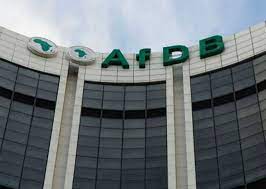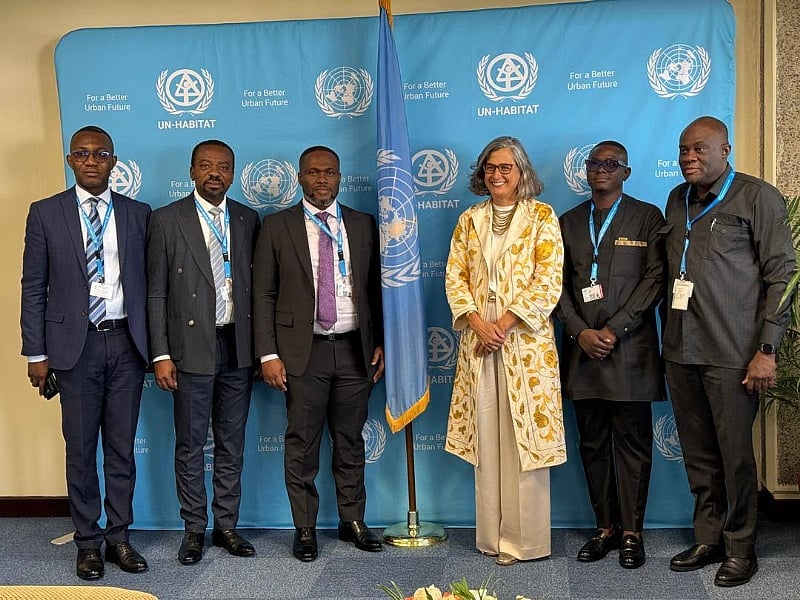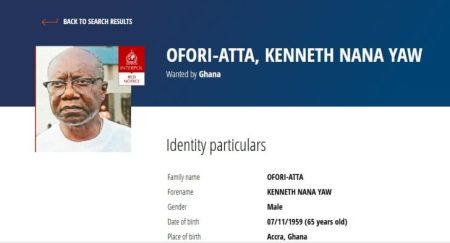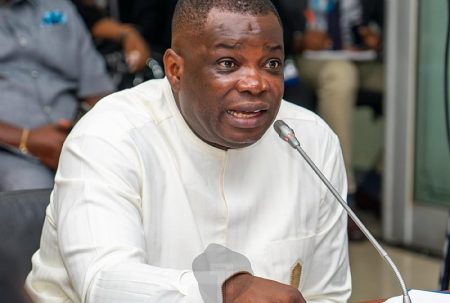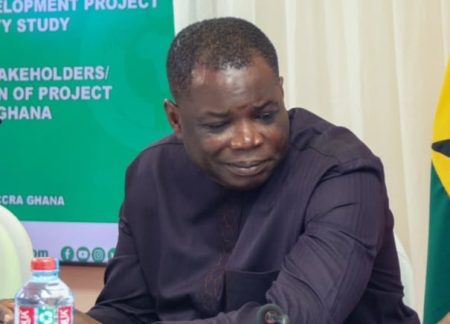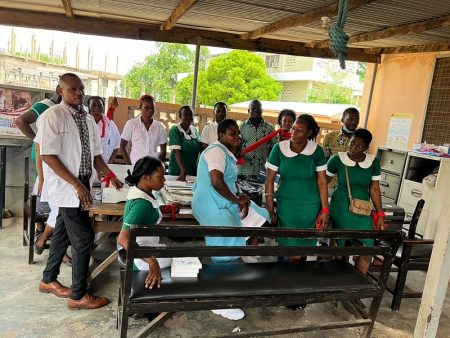Ghana’s Minister for Works and Housing, Mr. Kenneth Gilbert Adjei, addressed the Resumed Second Session of the UN-Habitat General Assembly in Nairobi, Kenya, emphasizing the government’s commitment to sustainable urban development and improved housing accessibility. He highlighted Ghana’s significant housing deficit, estimated at 1.8 million units, and the rapid urbanization rate, with 56.7% of the population residing in urban areas. This situation underscores the pressing need for well-structured urban planning initiatives and the development of affordable housing solutions to address the growing demand and ensure adequate living conditions for the population. Mr. Adjei reaffirmed Ghana’s commitment to collaborating with UN Member States and development partners to achieve the Sustainable Development Goals (SDGs) and the African Union’s Agenda 2063.
Mr. Adjei outlined key national strategies designed to address these challenges. The Ghana Smart Sustainable Development Goals Cities Programme, for example, is an integrated approach aimed at fostering sustainable urban development by aligning urban growth with the SDGs. This program likely incorporates elements of smart city technology, green building practices, and community engagement to create more resilient and inclusive urban environments. Complementing this is the District Housing Programme, which focuses on stimulating investment in climate-smart and affordable housing projects in underserved districts. This initiative aims to decentralize housing development and provide access to decent and affordable homes for populations in less developed regions. The combined effect of these programs demonstrates Ghana’s commitment to addressing the housing deficit while promoting sustainable development principles.
The Minister endorsed ten resolutions adopted by the General Assembly, including the Strategic Plan for 2026–2029. This strategic plan likely outlines UN-Habitat’s key priorities and actions for the specified period, focusing on issues such as sustainable urbanization, housing provision, urban resilience, and climate change adaptation in cities. Ghana’s endorsement of these resolutions signifies a strong commitment to working collaboratively with international partners to advance the global agenda on sustainable urban development. This also reflects the alignment of Ghana’s national urban development goals with the broader international framework established by the UN-Habitat General Assembly.
During the African Ministerial Dialogue, part of the Assembly’s proceedings, Mr. Adjei participated in discussions focused on addressing the widespread housing challenges across the African continent. The dialogue emphasized the critical need for African nations to prioritize housing within their respective national development agendas. This prioritization highlights the understanding that adequate housing is not just a social necessity but also a key driver of economic growth and overall societal well-being. The Dialogue encouraged bold and decisive actions to accelerate the delivery of housing units, acknowledging the significant gap between housing demand and supply across the continent. This call for urgent action underscores the need for innovative financing mechanisms, policy reforms, and collaborative partnerships to effectively tackle the housing crisis.
Mr. Adjei highlighted the persistent challenge of housing finance, a significant obstacle to expanding housing provision. This constraint requires innovative approaches to resource allocation and the mobilization of local funding sources. The reliance on traditional aid and external support has been dwindling, necessitating a shift towards more sustainable and domestically driven financing mechanisms. This emphasizes the need for public-private partnerships, the development of local mortgage markets, and the exploration of alternative financing models such as community-based savings and loan schemes. Furthermore, fostering a conducive investment climate can attract private sector participation and contribute to the long-term sustainability of housing projects.
The Minister expressed Ghana’s appreciation for UN-Habitat’s collaboration in developing two key national instruments: the National Housing Policy and the Climate Action Roadmap for Decarbonizing Construction. The National Housing Policy likely provides a comprehensive framework for addressing the country’s housing challenges, including strategies for affordable housing development, land management, and housing finance. The Climate Action Roadmap for Decarbonizing Construction, on the other hand, addresses the environmental impact of the construction sector and promotes sustainable building practices. This roadmap is crucial for mitigating the contribution of the construction industry to greenhouse gas emissions and promoting environmentally responsible development. On behalf of President Mahama, Mr. Adjei conveyed gratitude for UN-Habitat’s ongoing support in implementing the New Urban Agenda and the Sustainable Development Goals, demonstrating Ghana’s commitment to international cooperation and its dedication to achieving sustainable urban development.


